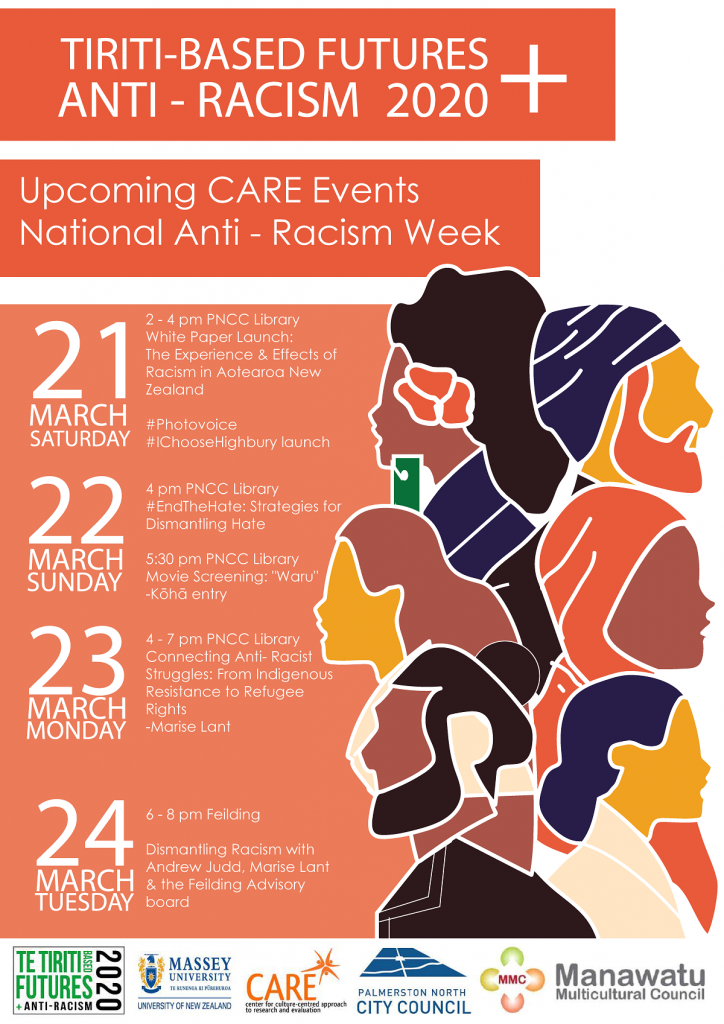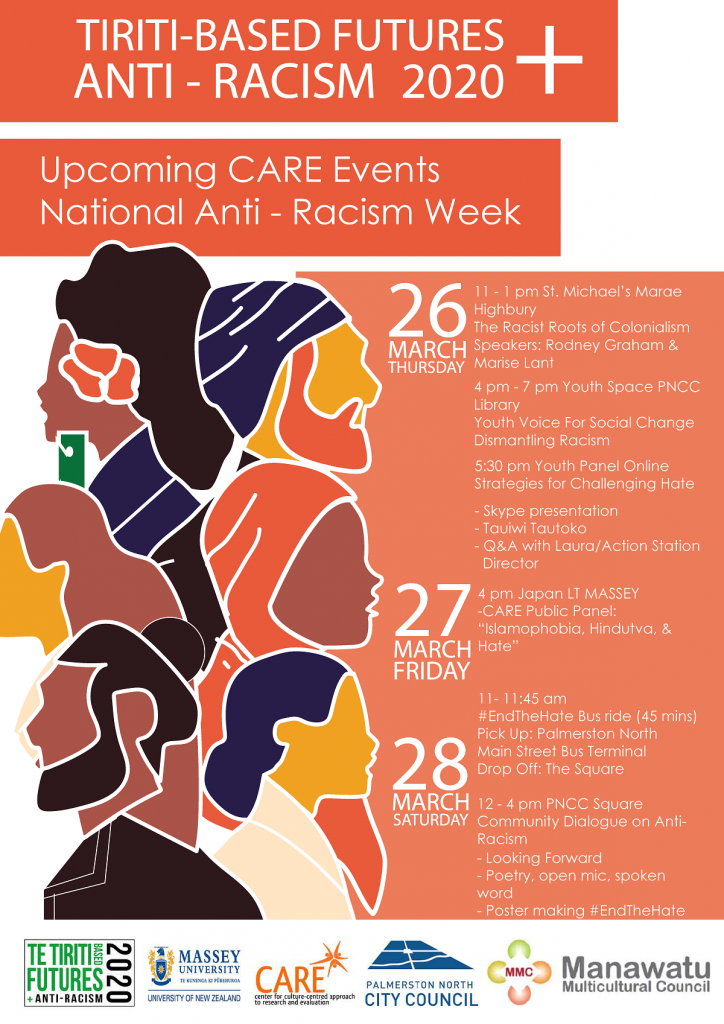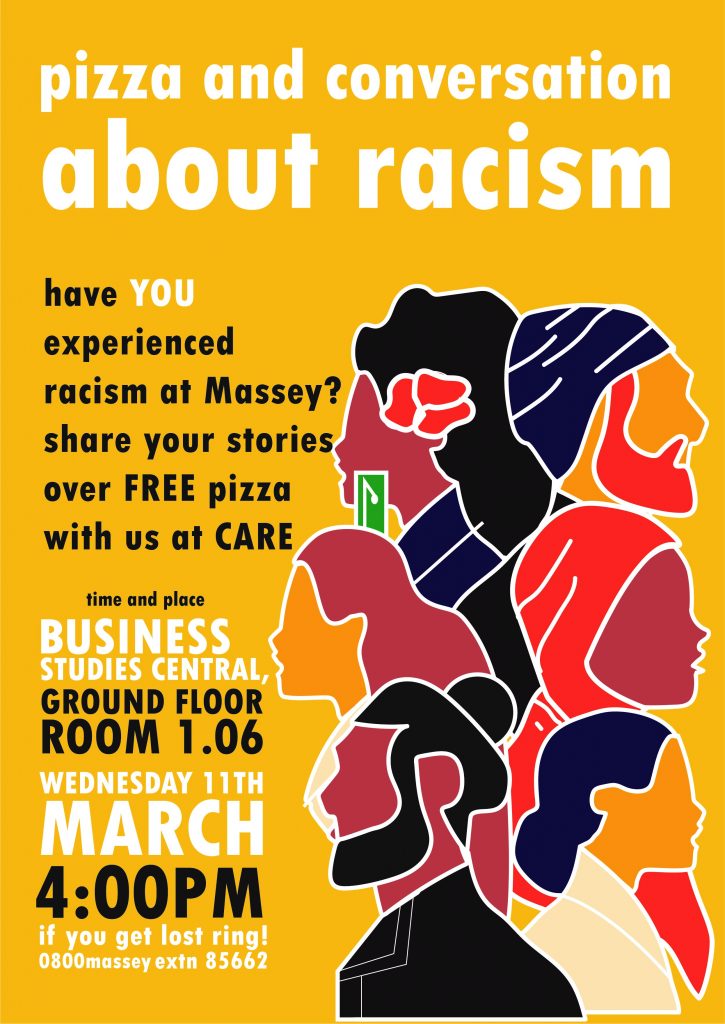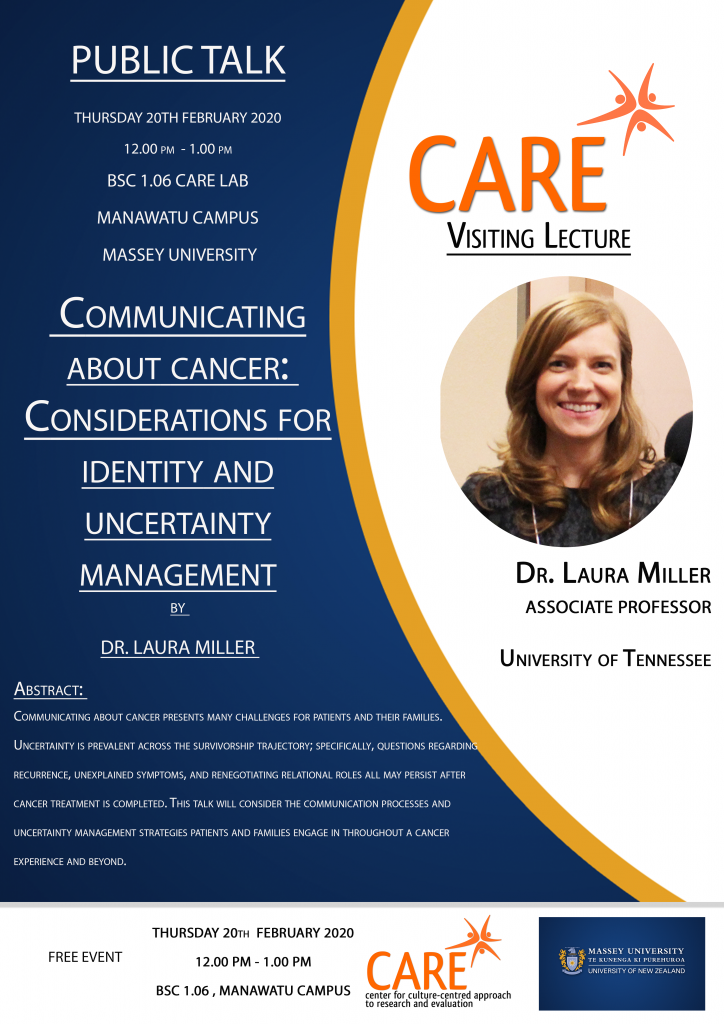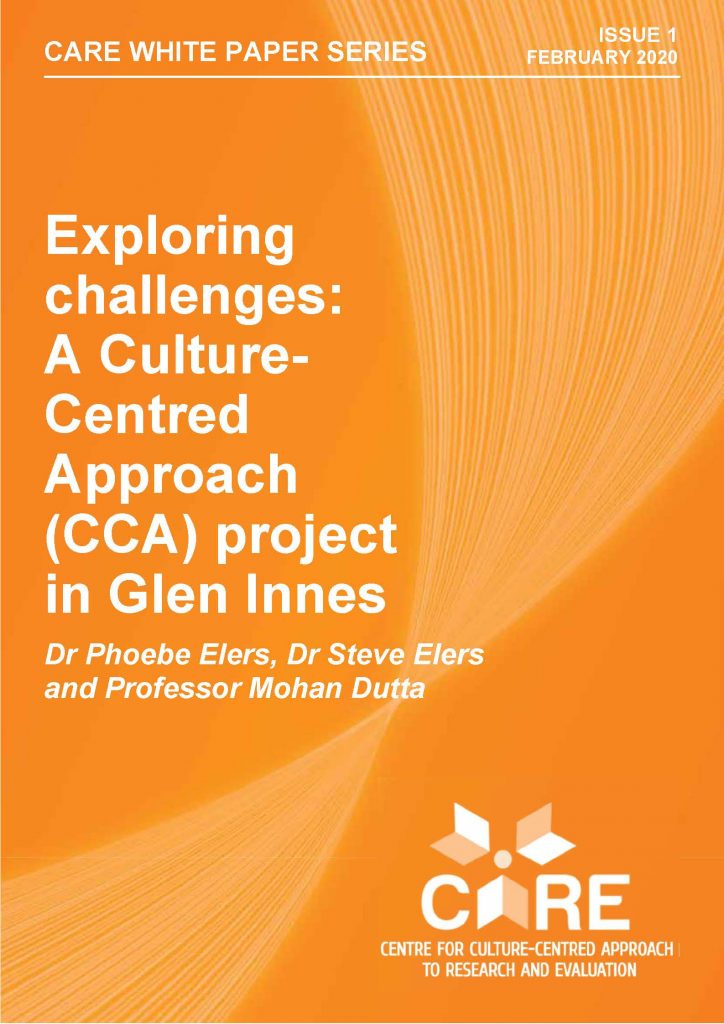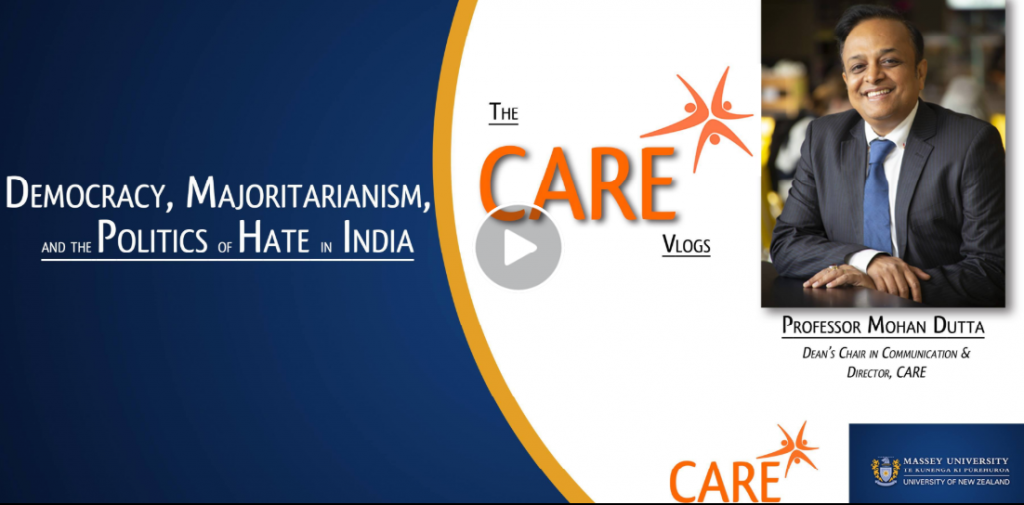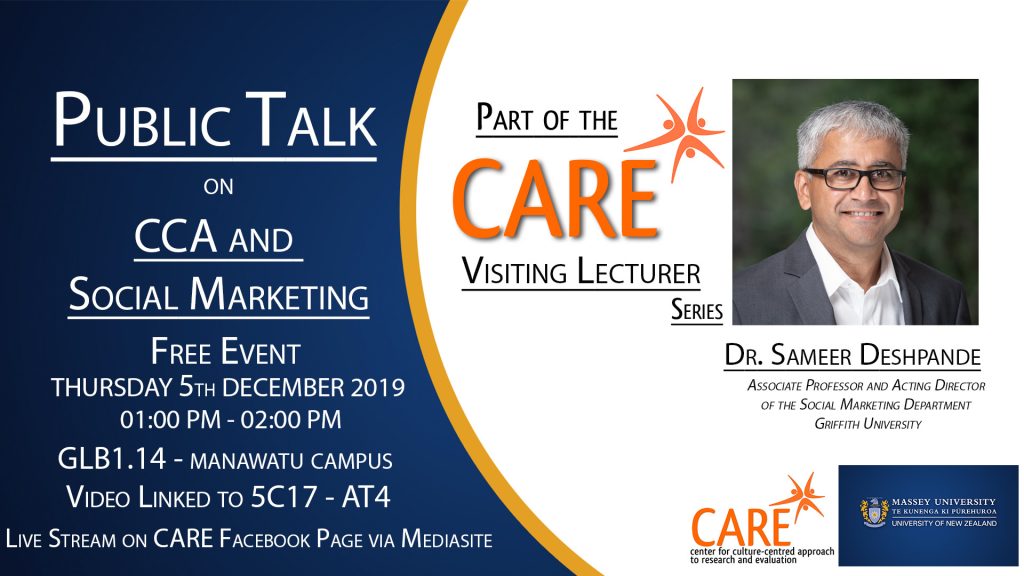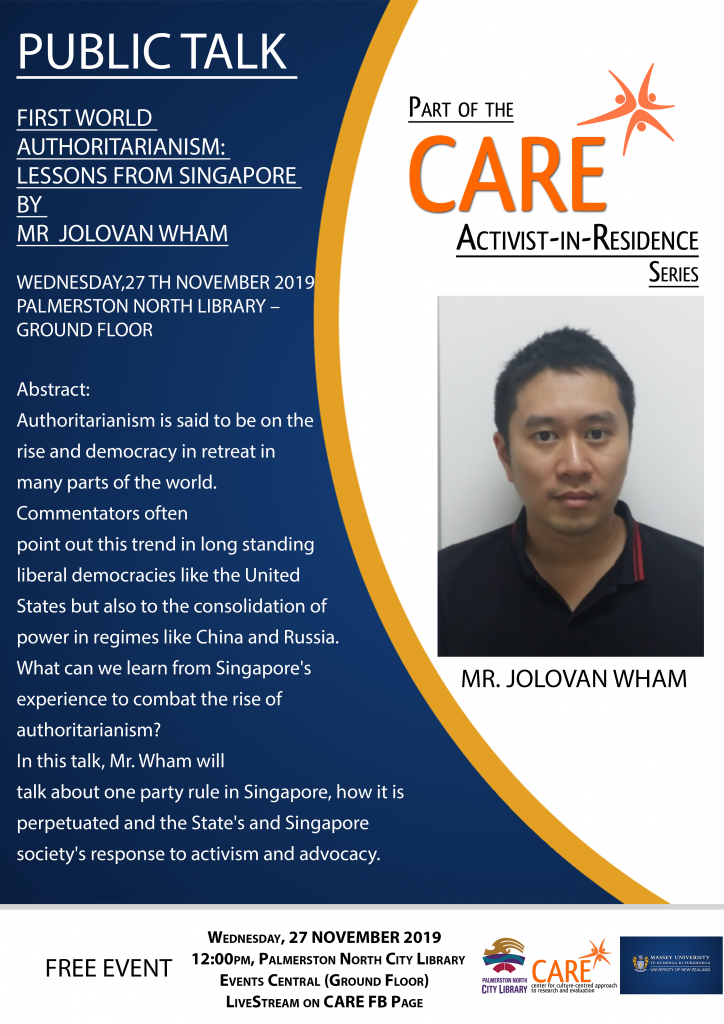Kia Ora,
Message sent on behalf of Prof Mohan Dutta (Director, Center for Culture-Centered Approach to Research and Evaluation (CARE)) following up on the earlier email, below are the updated event posters and the online livestream links to CARE’s Anti-Racism Events between 21-23 March 2020
21 March @ 2 pm – #EndTheHate Campaign Launch – ONLINE
Event Page: https://www.facebook.com/events/218154419241534/
Livestream link: @CAREMassey
22 March @ 4 pm – ONLINE
#ENDTHEHATE: Strategies for dismantiling hate
Guest speaker: Anjum Rahman
Event page: https://www.facebook.com/events/2715896505203833
Facebook livestream Link: https://www.facebook.com/CAREMassey/videos/1380049082185971/
23 March @ 5 pm – ONLINE
CARE Event: Connecting Anti-Racist Struggles: From Indigenous Resistance To Refugee Rights
Guest speaker: Marise Lant
Event page: https://www.facebook.com/events/1041743546196044/
Facebook livestream Link: https://www.facebook.com/CAREMassey/videos/2757140504340482/

